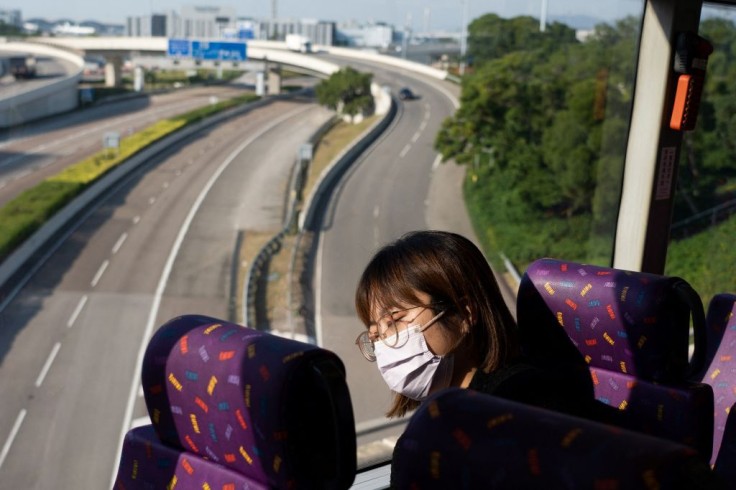
Toria Maze, a mom-of-three from the U.K., has been dealing with a long-COVID sleep disorder symptoms after contracting the virus two years ago. The former teacher said that she used to be a healthy adult, but since having COVID in March 2020, her body has never been the same.
In an exclusive interview with Daily Express, Maze said that some of her worse long-COVID sleep disorder symptoms included night sweats, as if she's menopausing, and shouting in her sleep. Her husband said it could be her subconscious expressing her feelings about being angry with her situation as she had never talked in her sleep before the pandemic.
Before the worldwide lockdowns, the mother had been bedridden for three weeks due to the nasty virus. Her father, who works as a pharmacist in another town, gave her inhalers that were her life-saving treatment. At that time, there were not enough data for medical experts to understand how to treat COVID-19.
After her ordeal, Maze returned to work and tried to adapt to the new normal. However, she soon noticed how much her body quickly got tired or how some regular tasks left her gasping for air.
Maze said that she used to be an active teacher who had no problems going up and down the school building. After COVID-19, she would get home from work, crawl onto the bed and sleep for two hours, have dinner and then sleep again for the rest of the night. She also refused to do anything else but rest in bed or on the couch during the weekends.
Then, as the months of extreme tiredness went on, Maze developed other symptoms like brain fog, heart palpitations, joint pains, pins and needles, earaches, and sleep disorders.
➡️ Fatigue presented as the most prevalent symptom during both OSC & PCS at 43% and 44%, respectively. Sleep disorder (36%; 33%), dyspnoea (31%; 40%), and cough (26%; 22%) followed in prevalence.
— htw (@heniek_htw) December 18, 2021
📄👇https://t.co/UYe59yomGi@HealthyFellow #LongCovid pic.twitter.com/c7GF4z0Y9g
Understanding Long-COVID Sleep Disorders
Maze was part of a study on long-COVID sleep disorder that involved more than 800 participants. Nearly 70 percent of the volunteers in the study said that their sleep patterns changed significantly after their bout with the virus.
According to Sleep Station, many studies since the pandemic have been done to find links between long-COVID and sleep disorders. Some studies have shown that the physical impact of long-COVID triggers different kinds of sleep disturbances.
Thus, it is not surprising to find a high rate of insomnia cases among former patients. Furthermore, these patients continue to experience residual inflammation that affects the quality of their sleep. Inflammation is a major indication that their body is still not functioning back to normal. It also leads to a never-ending cycle of poor sleep.
What's making COVID patients lose a lot of shut-eye as well are external issues like lockdowns, masking, and job security. These issues are causing significant post-traumatic stress disorders among some patients, especially if they still can't shake the illness from their system after many months.
Potential Cure for Long-COVID?
Pfizer's antiviral regimen Paxlovid might work in treating long-COVID haulers following a report from two women who took the medication to help manage their symptoms, according to Reuters.
One of the women is a researcher who said that her symptoms improved quickly after taking the drug.
However, kit Longley, the spokesperson for Pfizer, said that they have not been conducting trials of Paxlovid for long-COVID and has not commented if the company's experts will consider this option.
Related Article : What Is Parosmia? Know the Effects of Long COVID for People Who Cannot Enjoy Good-tasting Food